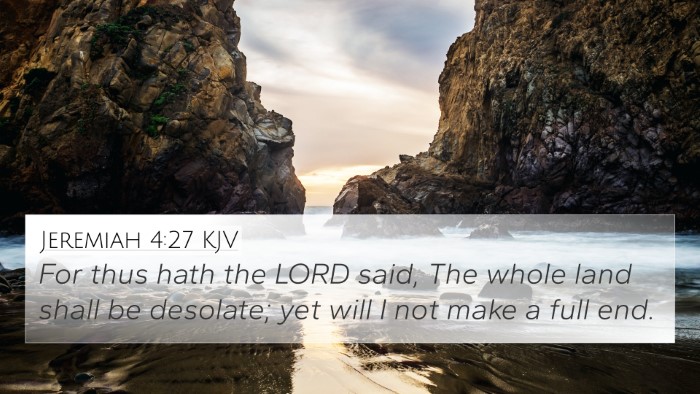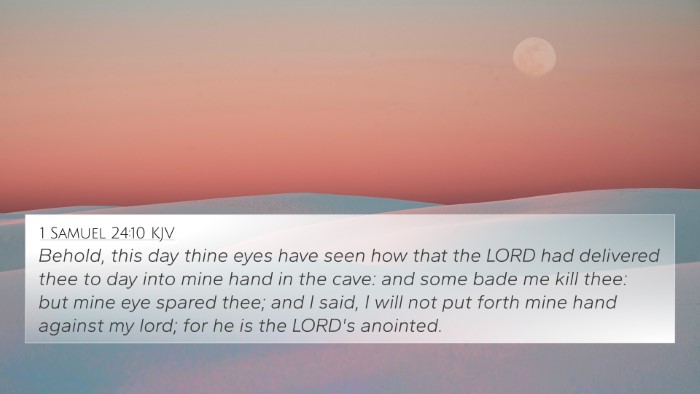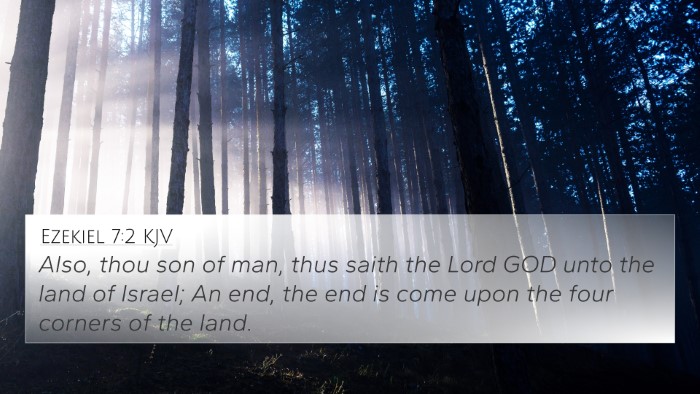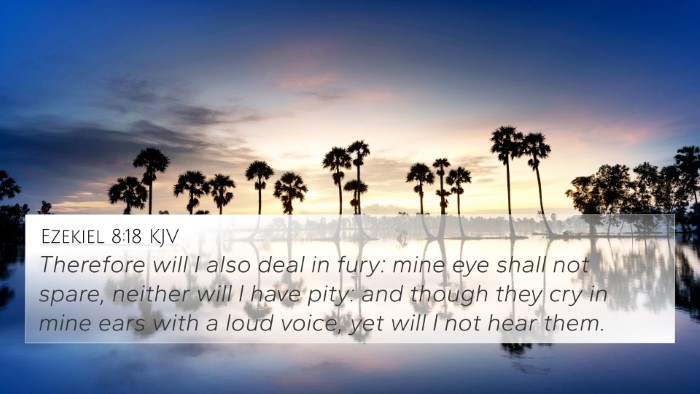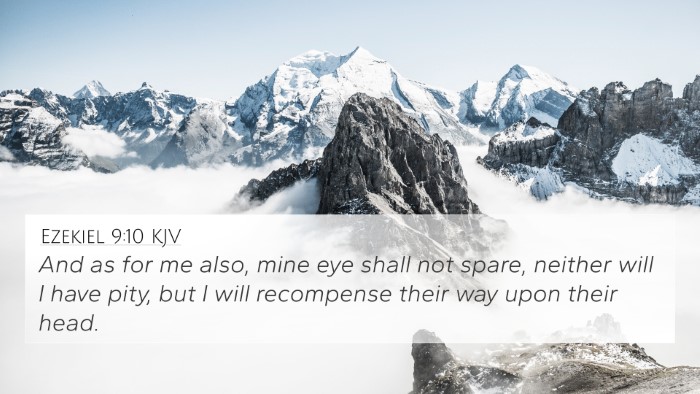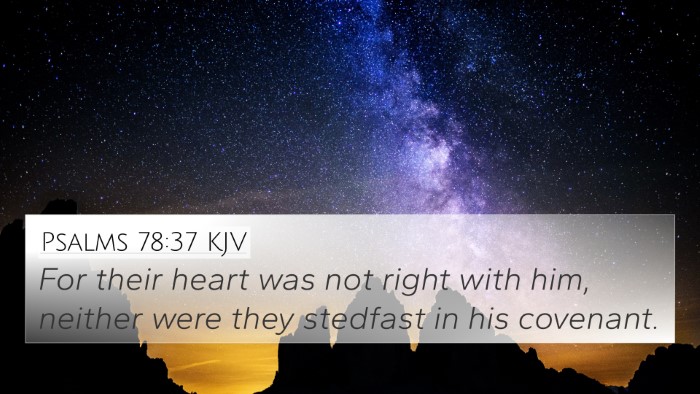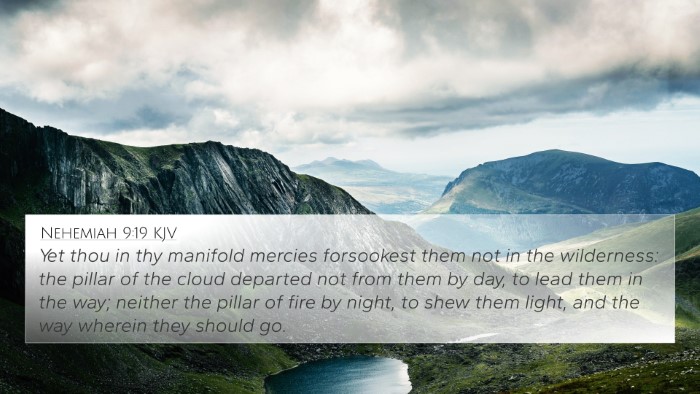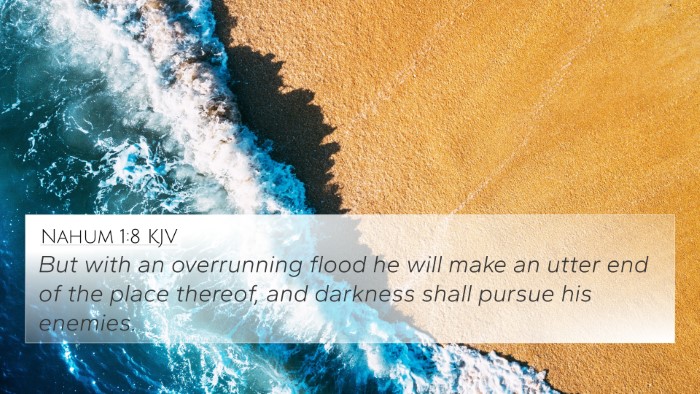Ezekiel 20:17 - Meaning and Interpretation
Ezekiel 20:17 states, "Nevertheless, mine eye spared them from destroying them, neither did I make an end of them in the wilderness." This verse reveals the mercy and compassion of God, even amidst judgment. It highlights God's desire to preserve His people despite their transgressions.
Summary of Biblical Context
Ezekiel 20 addresses God's judgment against Israel for their idolatry and rebellion. This chapter serves as a reminder of God’s faithfulness to His covenant, emphasizing the tension between divine justice and mercy.
Public Domain Commentaries Insights
-
Matthew Henry:
Henry emphasizes God's mercy as a critical theme. He notes that even when the Israelites wandered, God’s eyes were upon them, showing His willingness to forgive and mend the broken relationship rather than destroy them completely.
-
Albert Barnes:
Barnes points out that this passage illustrates divine grace and preservation. God, who could justifiably destroy His people for their sins, chose instead to spare them, indicating His enduring love and commitment.
-
Adam Clarke:
Clarke reflects on the wilderness as a symbol of spiritual desolation. He suggests that God's refusal to end the lives of the Israelites signifies an opportunity for redemption and revival, as He remains actively engaged in guiding them back to righteousness.
Key Themes in Ezekiel 20:17
- God’s Mercy: This verse highlights the theme of God’s compassion, showing that He is slow to anger and quick to forgive.
- Divine Judgment vs. Grace: The balance between judgment for sin and the offer of grace is a core theme in the Bible.
- Covenant Relationship: God’s faithfulness to His covenant with Israel, despite their unfaithfulness, underscores His commitment to His people.
Cross-References for Ezekiel 20:17
Here are some relevant Bible verse cross-references that connect with Ezekiel 20:17:
- Psalms 78:38: "But he, being full of compassion, forgave their iniquity, and destroyed them not." - Reflects God's patience and mercy towards sinners.
- Ezekiel 36:21-22: "But I had pity for mine holy name, which the house of Israel had profaned..." - Highlights God's concern for His name amidst judgment.
- Romans 9:15-16: "For he saith to Moses, I will have mercy on whom I will have mercy..." - Discusses the sovereignty of God's mercy.
- 2 Peter 3:9: "The Lord is not slack concerning his promise, as some men count slackness; but is longsuffering to us-ward..." - Captures the essence of God’s patience and desire for repentance.
- Isaiah 54:7-8: "For a small moment have I forsaken thee; but with great mercies will I gather thee." - Echoes the promise of restoration.
- Hebrews 8:12: "For I will be merciful to their unrighteousness..." - Reveals God’s intent to forgive in the New Covenant.
- John 3:17: "For God sent not his Son into the world to condemn the world; but that the world through him might be saved." - Divine purpose in sending Christ aligns with the theme of mercy.
Understanding the Thematic Connections
The connectiveness of scriptures can unveil profound theological insights. Cross-referencing Biblical texts like Ezekiel 20:17 with other verses emphasizes the consistency of God's nature across both the Old and New Testaments.
-
Inter-Biblical Dialogue: Engaging in comparative Bible verse analysis can be enriching. For example, understanding the punitive aspect of God's judgment illustrated in Ezekiel can be softened and interpreted through the lens of Christ's redemptive work in the New Testament.
-
Tool for Bible Cross-Referencing: Utilizing tools such as Bible concordances and Bible cross-reference guides helps in identifying rich, thematic connections that enhance comprehension.
Conclusion
Ezekiel 20:17 serves as a profound reminder of God’s mercy prevailing over judgment. As we study Bible verses that relate to each other, we can appreciate the deep connections and overarching themes throughout scripture. Employing cross-referencing Bible study methods can greatly deepen our understanding of God's character and His dealings with humanity.





